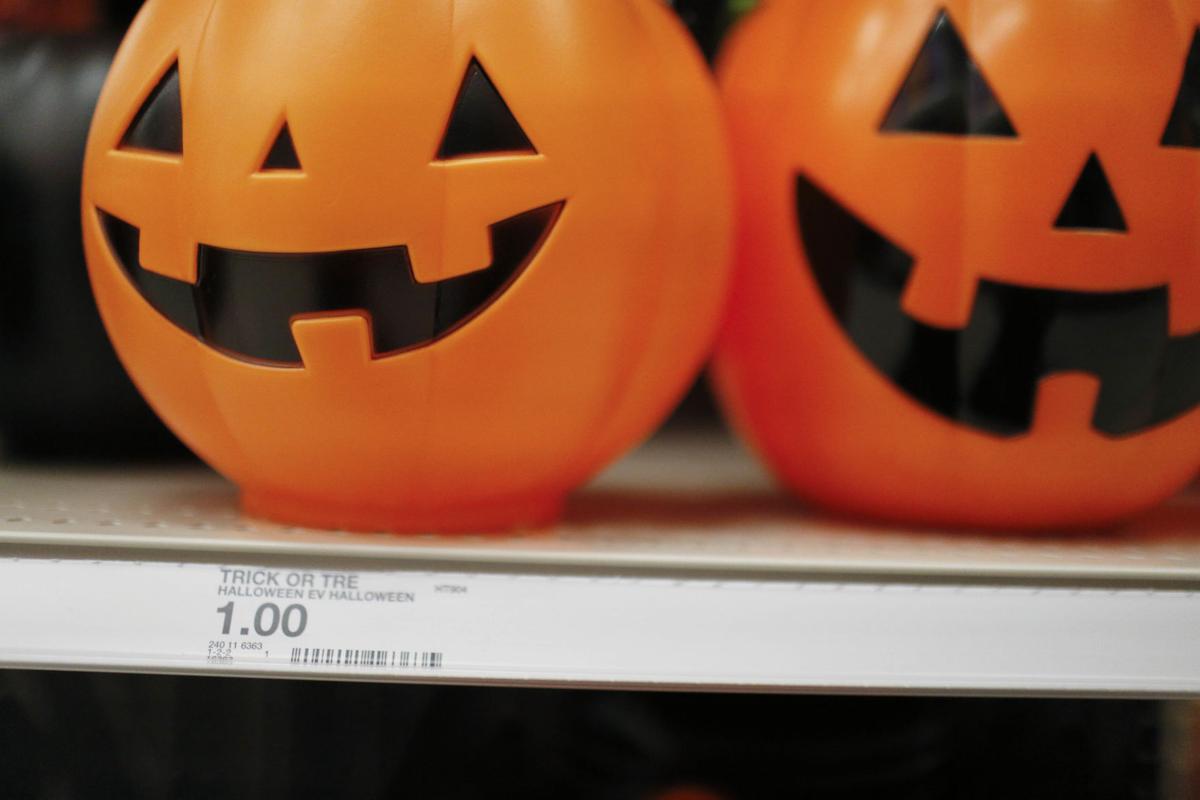With Halloween on Sunday it’s the time of year where myths and urban legends abound, including about children ingesting marijuana-based edibles made to look like popular candy.
Steven Dudley, director for the Arizona Poison and Drug Information Center, said those fears about marijuana-based edibles like gummies, chocolate bars and other candy-like paraphernalia being passed out to trick-or-treaters are largely unfounded.
“Traditionally looking back from 2019 and on, you really don’t have an uptick with any sort of cannabinoid or marijuana-based exposure around this time of year,” he said.
That’s unsurprising to Mike Robinette, executive director for the Arizona branch of the National Organization for the Reform of Marijuana Laws.
“There has never been any widespread reporting of anyone handing out cannabis edibles to kids on or during Halloween,” he said. “Is it possible that it could happen in a very, very limited basis? I mean, we all know that there’s some deranged people in our society, anything is possible.”
For Robinette, the stories of malevolent stoners giving out their homemade or store-bought edibles to unsuspecting kids has a similar ring to stories of candy filled with razor blades from a previous era.
He said he thinks the uproar around marijuana-based edibles is partly the reanimation of old urban legends, and part political.
“This fear, in my humble opinion, comes from prohibitionists fear-mongering through the years, because what a great way to scare people about something called cannabis: It’s getting into your kids trick-or-treat bags,” he said.
Dudley did note that 2021 has seen slightly more calls regarding some sort of marijuana-based intoxication already (67) as opposed to all of 2020 (63). For context, marijuana dispensaries in Arizona were limited to sales to medical patients until late January this year, when recreational sales began.
But, Dudley said, most of those calls have involved either teens or people over the age of 18 who took some sort of tetrahydrocannabinol-based substance intentionally. THC is the psychoactive ingredient of marijuana.
“These are people who are intentionally using and just don’t understand how edibles work,” he said. “But even when you look back the last two years around Halloween time, or in the month of October, November? Those are relatively slow months for calls to our center.”
When the center does receive calls about younger children, Dudley said those are usually because of a child getting into some sort of candy- or chocolate-like edible in the home.
“The big issue is when it’s in the home, the parents of the kids who have it in their homes,” he said. “And I think these things look just like candy sometimes and they’re marketed to look like candy, look like cereal.”
Samuel Richard, executive director of the Arizona Dispensaries Association, pushed back on the notion that legally obtained and regulated marijuana edibles are in any way marketed toward children, pointing to language within both Proposition 207, which legalized recreational adult-use marijuana and it’s predecessor Proposition 203, which created the medical marijuana system, that specifically prohibits it.
Some of those provisions include a ban on using animals or human-like creatures and banning the use of popular brand names like Nerds or Red Vines.
While Richard acknowledged that some edibles obtainable on the illicit market “may look just like an Oreo full of THC,” he said that only strengthens the argument for legalization.
“It’s times like these that make the case for regulated cannabis better than any other time we can,” he said.
Robinette allowed that such a scenario, with a child getting into their parents’ edibles, was realistic. Like Richard, he pointed to the current state controls in place.
However, he said the responsibility for such an incident would ultimately be on the adult.
“It is incumbent upon the consumer to keep those products away from children,” he said. “We are an advocate for responsible consumption, either for patients or adult use. We don’t advocate for kids to ever consume marijuana, it’s wrong. However it is incumbent upon the consumer to keep those products away from kids.”
Dudley said that if a child, or anyone else for that matter, does unexpectedly (or intentionally) consume an edible and they don’t feel well, they should call the Arizona Poison and Drug Information Center. He said there really isn’t a hard and fast rule for riding out every edible encounter.
“It’s a scalability thing,” he said. “They could have to be watched overnight. … In a couple of cases that we’ve had, they did require hospital treatment and interventions at the hospital they couldn’t have gotten at home.”
While all three said they wouldn’t worry about finding maliciously placed edibles in children’s Halloween candy, all suggested parents should check anything received outside the home.





